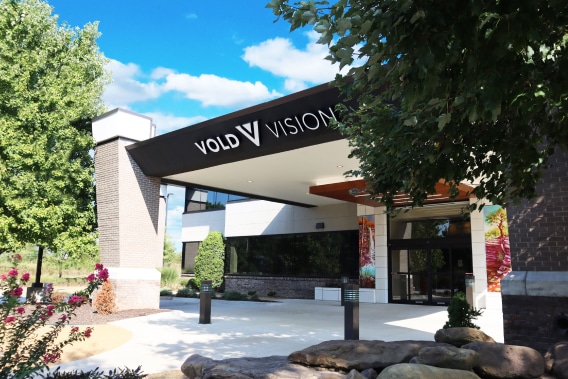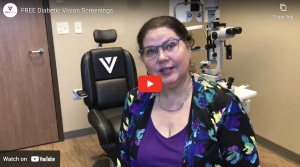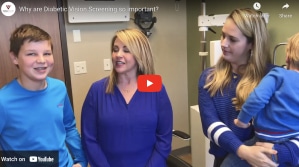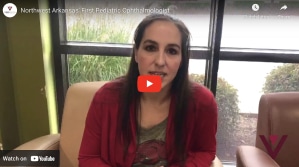Pediatric
As children and teens progress through school, it is vital to have regular eye exams that ensure vision problems do not slow learning. According to the College of Vision Development, an estimated 25% of students have vision problems needing treatment.
While many schools offer vision screenings, they may not be performed by a trained optometrist and typically focus on distance vision. A complete eye exam by a qualified optometrist or ophthalmologist at Vold Vision in Northwest Arkansas will check for nearsightedness, farsightedness, astigmatism, color blindness, clumsy eyes, lazy eye, and more.
Discover our patient success stories.
*Individual results may vary.
How Does Pediatric Myopia Treatment Work?
Vold Vision’s Bright Futures team uses state-of-the-art technology to evaluate your child’s eyes and develop a customized, non-invasive treatment plan for your child. Our non-surgical treatments are comprised of specialty contact lenses and prescription eye drops. During your child’s initial appointment, Dr. Emma Holden, Vold Vision pediatric optometrist, will outline the best treatment plan for your child.
What are the Benefits of Pediatric Eye Care?
Pediatric eye care catches various eye problems before they can hinder your child’s learning and slow the progression of long-term vision problems. Some of the conditions treated through pediatric eye care include:

- Eye crossing (strabismus)
- Eye movement disorders (nystagmus)
- Vision impairment due to Down Syndrome, cerebral palsy, and cortical blindness
- Photorefraction and screening for amblyopia
- Retinopathy of prematurity, retinal malformations, retinoblastoma, and optic nerve disorders
- Cataracts and glaucoma
- Drooping or misshapen eyelids and hemangiomas
- Tear duct disorders
- Orbital infections and tumors
- Conditions of eye movements and double vision
Furthermore, pediatric eye care can improve learning, prevent long-term vision problems, and vision loss from an injury or accident, and help children and teens with allergies, diabetes, or conditions like lazy eye or pink eye. At Vold Vision, our InfantSEE Program provides infant exams from birth to age one, allowing you to ensure healthy eyes for your infant free of charge.
How Long is the Recovery after Pediatric Eye Care?
If a child is diagnosed with an optical condition, the doctor will create a custom treatment plan based on the child’s unique needs. Parents should continue to schedule regular eye exams every two years or as their doctor recommends. Once children start school, annual eye exams should be scheduled to prevent learning disabilities and catch developing eye issues.
It’s also essential to have regular eye exams and a relationship with an eye doctor in case of accidents, injuries, and emergencies. Parents can also help their child’s vision with age-appropriate time limits, and frequent screen breaks to prevent computer vision syndrome (CVS), which causes problems with vision, dry eyes, headaches, and more.
Learn More About Pediatric Eye Care
Why Should I Go to Vold Vision for Pediatrics?
Providing the most advanced diagnostic consultations and medical and surgical management of children’s eye disorders, Dr. Napier & Dr. Holden understand the unique needs of caring for children and their families.
Together they have expertise in a range of areas, including but not limited to: weak eye muscles, crossed or wandering eyes, eye infections, eye injuries, visual processing disorders, cataracts, glaucoma, neurological diseases, and the diagnosis of problems of the eye caused by conditions such as diabetes, juvenile rheumatoid arthritis.

Dr. Emma Holden is a board-certified optometric physician and one of the country’s first doctors to provide a comprehensive, customized approach to treating myopia. Dr. Sharon Napier is Northwest Arkansas’ first and only fellowship-trained pediatric ophthalmologist. From premature babies to teenagers, our doctors provide first-class care to more than 200,000 children in the region.
Take the Next Step
To learn more about pediatric eye care, schedule a consultation with one of the providers at Vold Vision. To schedule a consultation, fill out the consultation request form below, or call (479) 442-8653.




